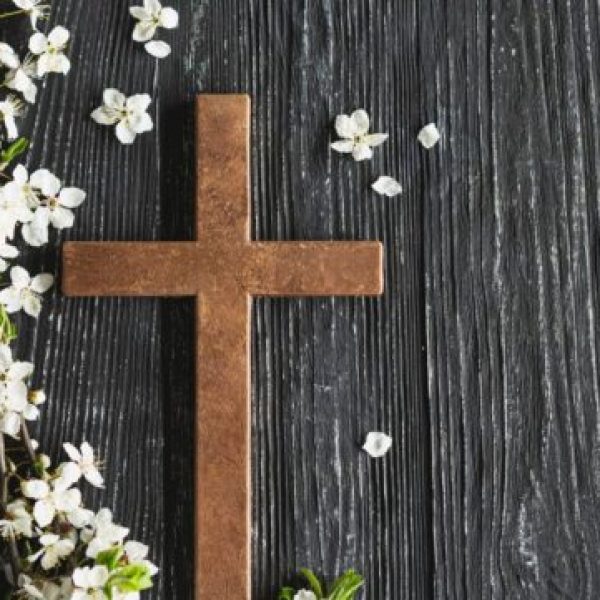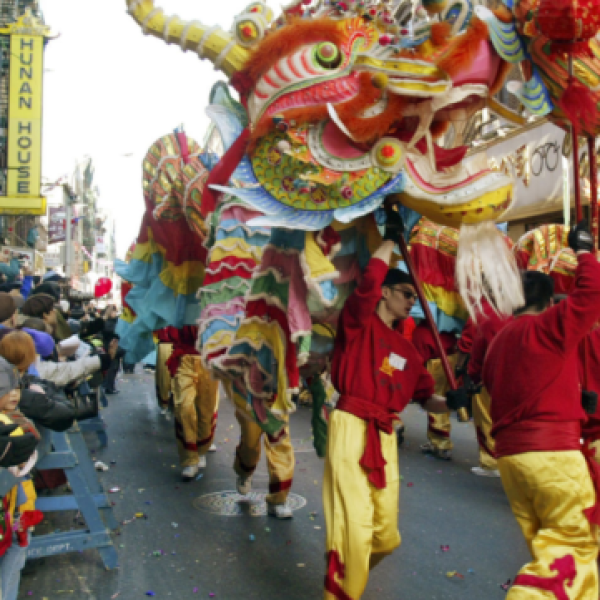The rabbit has been a symbol of many things throughout the ages, from fertility and abundance to innocence and rebirth. It’s not hard to see why – rabbits are seen as gentle, timid creatures that bring us joy when we see them in the wild or in our own gardens. But what does the rabbit mean on a deeper level? In this article, we’ll explore the symbolic meaning of the rabbit, taking into account its history and cultural context.
From ancient times to now, rabbits have been viewed as symbols of luck, fertility, and prosperity. In some cultures, they were even believed to be gatekeepers between worlds, with their magical powers allowing people to access hidden realms beyond ordinary reality. Even today, they can be found all around us: on jewelry, cards, and other trinkets; in children’s stories; and even in popular cultures like films, music videos, and video games.
But aside from being cute symbols of luck and fortune, rabbits also represent something far more serious: a reminder to take care of ourselves physically and mentally. Rabbits embody qualities such as gentleness, vulnerability, and resilience which provide valuable lessons about how we should live our lives – no matter what challenges come our way. So let’s dive deeper into what these furry little animals really stand for!
The rabbit has been an important and revered symbol throughout many cultures for centuries. Its symbolism ranges from fertility, good fortune, and luck to cunningness, cleverness, and adaptability. In Buddhism, rabbits are seen as symbols of generosity; they represent the capacity to give without expecting something in return. Rabbits have also been associated with protection: in Ancient Egypt, a goddess named Renenutet was often depicted as having the head of a cobra or a woman with a pair of snakes wrapped around her shoulders and two hares at her feet.
In Celtic mythology, rabbits were believed to protect life’s secrets and mysteries because they could move through both aboveground and underground worlds. They represented a balance between spiritual realms and physical realities. Rabbit imagery is commonly found in shamanic practices, where it stands for transformation, healing powers, intuition, agility, and the ability to blend into any environment. The symbolism of the rabbit is versatile yet powerful—in all its incarnations representing hope and renewal for humanity.
The rabbit is a powerful symbol in many cultures around the world. In ancient Egyptian mythology, it was believed that the goddess of fertility and motherhood, Isis, had the head of a rabbit. For this reason, rabbits were seen as symbols of fertility and abundance. Similarly, in Chinese culture, rabbits are considered lucky animals because they can bring good fortune and prosperity.
In some Native American tribes, rabbits have been seen as messengers between humans and gods; they act as intermediaries who carry prayers from one realm to another. Furthermore, rabbits are also seen as wise creatures with great intuitive powers of perception. In Japanese folklore, they represent peace and kindness, while in Hinduism, they’re thought to embody humility and gentleness.
Rabbits can thus mean different things depending on the context or cultural background you look at them through for some people, they may evoke feelings of luck or fertility, but for others, their symbolic meaning could be related to wisdom or inner strength.
In Chinese culture, the rabbit symbolizes longevity and good fortune. Having a picture or statue of a rabbit in one’s home is believed to bring abundant luck. The rabbit also represents modesty and humility, as its soft white fur reflects innocence and purity. Additionally, it has strong ties to fertility; rabbits tend to reproduce quickly and are seen as symbols of new beginnings and prosperity. Further, since the moon plays a vital role in folktales about rabbits in Chinese tradition, the creature may be associated with lunar events such as full moons.
The image of the rabbit can also be found throughout art and literature from China, particularly during festivals like Lunar New Year when decorations depicting rabbits are popular. These items often feature traditional motifs such as flowers or scenes of rural life, but all celebrate the same message: that a long life filled with health and happiness awaits those who honor this mighty creature.
Moving from the rabbit’s significance in Chinese culture, exploring its meaning in Japan is interesting. The rabbit has been a long-standing symbol for many different things:
- Fertility and abundance – In Shintoism, rabbits are often considered gods of good fortune who bring wealth and fertility.
- Innocence and Purity – Rabbits are also seen as gentle creatures with pure hearts, embodying innocence and virtue.
- Longevity & Renewal – They have even been associated with longevity due to their ability to quickly reproduce and continuously renew themselves within generations.
The Japanese people value these qualities highly, so they look kindly upon any creature that embodies them – including the rabbit! Whether through folklore or art, the rabbit’s symbolism can be found throughout Japanese culture. From Kintarou – an old folk character said to resemble a golden hare – to Usagi Tsukino from Sailor Moon, this symbolic animal remains popular today among all ages in Japan. So while its representation may vary slightly between cultures, one thing remains true; the rabbit holds deep significance across East Asia.
In Native American cultures, the rabbit is a powerful symbol of fertility and abundance. According to an article published by Rasmussen College, 94 percent of the tribes in North America have stories about rabbits that involve their symbolism. These stories often focus on the rabbit’s ability to outwit predators or its capacity for reproducing quickly. In some cases, it even serves as a messenger between humans and gods.
The Hopi tribe believes that when Coyote created the world he appointed four animals – bear, badger, fox, and rabbit – caretakers who would look after all living things. The Zuni believe that Rabbit was sent from above with instructions to teach people how to use plants for food and medicine. Meanwhile, the Cherokee tell a story of Rabbit tricking Bear into giving away his power over animals, while other tribes see Rabbit as an embodiment of joyousness and playfulness. All these stories demonstrate how important this animal is within Native American culture; it is seen as a source of wisdom and life-sustaining energy.
The white rabbit is a powerful symbol with a long history in many cultures worldwide. It has come to represent good and bad traits, depending on its context. Here are four symbolic meanings of the white rabbit:
- Transformation: The white rabbit often represents transformation from one state or form into another. This could be physical transformation through metamorphosis or spiritual transformation through new experiences and learning.
- New Beginnings: White rabbits can also signify a fresh start or new opportunities that lie ahead. They remind us to embrace change and look forward to what lies beyond our current situation.
- Luck & Fortune: In some cultures, it’s believed that spotting a white rabbit brings luck and fortune – so keep your eyes peeled!
- Fertility: Rabbits have long been associated with fertility due to their rapid breeding cycle, making them symbols of abundance and prosperity too!
From ancient mythology to modern symbolism, the white rabbit is an animal full of rich meaning just waiting for us to explore further!
In Celtic mythology, the rabbit is seen as a symbol of fertility and plenty. It was believed that rabbits were born with an abundance of luck and prosperity which they could spread to others when frequently encountered. The rabbit’s strong association with life-giving energies makes them a powerful representation of healing, rebirth, and the cycle of life itself.
The rabbit also has spiritual connotations in its ability to move between two worlds: physical reality and the realm of dreams. In this way, it can be said to represent our deepest desires – those we may not even realize exist within us. Connecting us to both realities encourages exploration and growth on a personal level.
The rabbit stands for creativity, intuition, adaptability, and strength; traits one must possess if they are looking to overcome obstacles or take risks in pursuit of their goals. Its capacity for transformation makes it an important emblem for anyone seeking change or renewal in their lives. As such, the rabbit is an inspiring reminder that each day contains new possibilities waiting to unfold before us.

Surprisingly, the rabbit is a widely used symbol in many different cultures. In fact, it has been featured on coins and jewelry for over four thousand years! Across time and space, this small creature has come to represent qualities like hope, fertility, luck, and even rebirth.
In some parts of Europe, rabbits are thought to be lucky enough to bring good fortune into one’s life. This can range from finding true love or career success. The Chinese also see the rabbit as a sign of abundance due to its reputation for reproducing quickly. Furthermore, the ancient Celts believed that rabbits were associated with the moon goddess and had healing powers capable of curing diseases.
These days rabbits carry an assortment of powerful meanings; they may signify innocence or vulnerability but also perseverance and faithfulness. Whatever your interpretation may be, it is clear that this animal holds great symbolic importance throughout human history and around the world today.
The symbolic meaning of the rabbit in dreams is often interpreted differently depending on your own personal experience. It may represent fertility, a new beginning, or even luck. In some cases, it can symbolize speed and agility; while for others it could be associated with fear or timidity.
Dreams featuring rabbits can also signify creativity and playfulness, as well as being an important reminder to take time out from our busy lives and have fun. The appearance of a white rabbit might indicate spiritual awakening or growth while seeing multiple rabbits together could mean that you are facing too many problems at once and need to prioritize them better. Whatever the symbolism behind these dream images, they give us an opportunity to reflect on ourselves and our lives in order to make positive changes.
Rabbits have often been used as symbols in tarot cards, and they can take on different meanings depending on the context. In general, rabbits are seen as a symbol of fertility, creativity, and abundance. They represent new beginnings, luck, and good fortune since their population is so prolific.
When depicted in a tarot card reading, rabbits signify:
- Emotional resilience
- A connection to the divine feminine
- The growth cycle of life
- An ability to move quickly through challenges
Rabbits also evoke feelings of intuition and awareness; they help us become more aware of our own emotions and reactions while also reminding us that it’s ok to slow down and “smell the roses” once in a while. Their presence encourages us to be present with ourselves and recognize our inner strength when facing difficulties along our journey. Rabbits offer up profound wisdom if we allow ourselves the opportunity to listen closely – something which many of us forget how to do over time. By forging a deeper relationship with these powerful symbols within the tarot deck, we can gain insight into an area of our lives that needs special attention or care.
The rabbit has captivated our imaginations for centuries as a symbol of luck, both good and bad. It’s no wonder why: the mysterious creature appears often in fables, literature, artwork, and folklore around the world. Its long ears are said to bring fortune or misfortune depending on its color – white for good luck, black for bad.
This mystical animal is also associated with fertility due to its prolific breeding habits, making it a powerful symbol of rebirth and renewal. In some cultures, it’s seen as an omen of death because rabbits were once believed to be able to predict when someone was about to die. On the flip side, many people consider them symbols of innocence and purity – especially when they’re depicted in children’s stories or artworks. Ultimately, each person assigns different meanings to this incredible creature based on their own experiences and beliefs.
In conclusion, the rabbit has different symbolic meanings in many cultures around the world. It is often seen as a symbol of fertility and luck, but it can also represent hope, renewal, or something else depending on context. In Chinese culture, rabbits are symbols of longevity, while in Japanese culture they may be associated with good fortune or even immortality. The Native American people have long viewed rabbits as connected to nature and used them for medicinal purposes. Rabbits can also appear in dreams and tarot cards with various symbolism attached to them; most common being related to luck – both bad and good.
Ultimately, whatever message we take from the rabbit depends on our own personal interpretation of its deeper meaning. We must remember that each individual’s relationship with this creature will carry their own unique understanding of what it represents.












